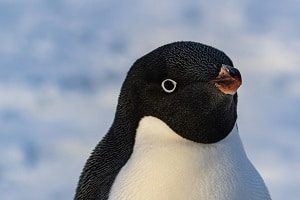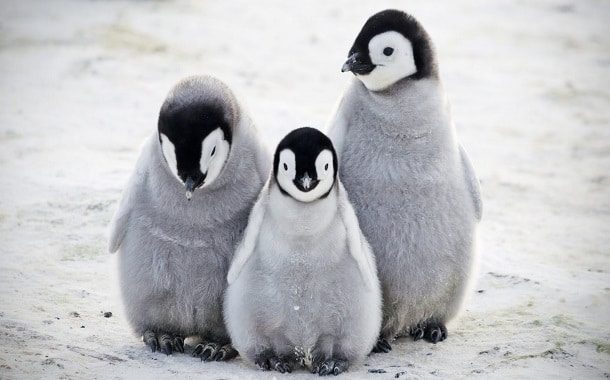How Much Does a Penguin Cost?
Last Updated on January 4, 2024
Written by CPA Alec Pow | Content Reviewed by ![]() CFA Alexander Popinker
CFA Alexander Popinker
With their adorable tuxedo-like appearance and fun, quirky personalities, it’s easy to see why penguins capture the hearts of so many animal lovers. You may have found yourself wondering – can I actually own a penguin as a pet? What would it cost?
In this article, we’ll cover everything you need to know about the realities of owning a penguin, including permit requirements, habitat setup costs, food, medical care, and more. You’ll get an in-depth look at penguin pricing so you can determine if owning these aquatic birds is feasible for your budget and lifestyle.
Key Takeaways on Penguin Pet Pricing:
- Acquiring a penguin legally starts around $5,000 – $25,000.
- Habitat construction and setup expenses are $10,000+ minimum.
- Food, medical care, and other supplies add thousands per year.
- Total costs easily exceed $75,000+ over the first 5 years of ownership.
Owning a penguin requires ample space, construction skills, and significant dedication to their specialized care.
How Much Does a Penguin Cost?
Unless you live near Antarctica, simply heading out and capturing a penguin in the wild is clearly not an option. So how do you legally adopt a penguin?
The average cost of a penguin is somewhere between $5,000 and $25,000, depending on factors like the breeding, the age and breed of the bird, and your location, according to classified ads you can find online. Penguins aren’t solitary birds, so you will probably need to get at least two, if not more, for them to have a healthy, happy life.
Here are the main ways to acquire a penguin in the U.S.:
- Adoption from zoos or aquariums – Some facilities with breeding programs occasionally have penguins in need of adoption. Prices range from $5,000-$25,000.
- Purchase from licensed exotic animal breeders – A limited number of specialist breeders sell penguins starting around $10,000.
- Import with permit – USDA allows some penguin importation with proper permits, quarantine, and fees averaging $5,000-$10,000 just for paperwork.
As you can see, actually acquiring a penguin starts at around $5,000 at minimum between purchase costs and licensing requirements. And competition is stiff – only a handful of breeders worldwide work with pet penguins due to tight regulations. Let’s look at other major costs next.
Habitat Setup – Expect to Invest $10,000+
Habitat setup is where penguin ownership costs really start to add up. Consider:
- Indoor/outdoor housing – Penguin habitats are enclosed, climate-controlled indoor areas attached to a large outdoor space starting at 200 sq ft minimum.
- Saltwater pool – A 900+ gallon saltwater pool kept in the 60s F is required for swimming and preening feathers. Pool filtration systems start around $5,000 installed.
- Climate control – To keep a penguin, you will also have to get heating and cooling equipment to maintain air temperatures in the 40s to low 70s F range from $3,000-$5,000.
- Substrate and landscaping – Pebbles, vegetation, hiding spots, and landscaping for terrestrial areas cost $500-$2,000.
- Cleaning supplies – Disinfectants, hoses, scrub brushes, and other cleaning gear run $500 or more.
Just the minimum recommended habitat setup for one penguin can easily top $10,000+ between construction, pools, HVAC, landscaping, and cleaning supplies. And costs multiply quickly for additional birds.
Feeding Your Penguin – Estimate $2,500+ Annually
Feeding pet penguins is another massive expense compared to owning a dog or cat. Most species eat 2-3 pounds of fish daily, requiring:
- Daily fish purchases – Buying sardines, herring, capelin, and other fish in bulk averages $5-$10 per pound.
- Annual fish costs – With 2-3 lbs fed daily, expect around $2,500 per year minimum just for one penguin’s needed supply of fish.
- Frozen storage – A large freezer for storing fish runs $500-$1,500.
- Supplements – Penguins need supplemental vitamins and minerals adding $250 or more to annual food costs.
As you can see, keeping your penguin well fed isn’t really cheap either. Your average penguin will eat food worth around $3,000 per year. Having to purchase, store, and manage hundreds of pounds of frozen fish each year is not for the faint of heart.
Overview of Penguins as Pets
 There are 18 different species of penguin, ranging from the Giant Emperor Penguins and King Penguins of Antarctica to the tiny Little Blues of Australia and New Zealand. While depictions in movies and TV make penguins seem like cute, cuddly companions, the reality of caring for real penguins is much more complex.
There are 18 different species of penguin, ranging from the Giant Emperor Penguins and King Penguins of Antarctica to the tiny Little Blues of Australia and New Zealand. While depictions in movies and TV make penguins seem like cute, cuddly companions, the reality of caring for real penguins is much more complex.
Here are some important facts on pet penguins:
- Penguins are social animals that live in large colonies and require interaction with other penguins to thrive. Solitary penguins often become depressed or stressed.
- They are extremely messy birds adapted for life in the water. Their enclosures require round-the-clock filtration and cleaning.
- Most species eat fish exclusively, requiring purchasing and storing large quantities of fresh seafood.
- Temperature and climate control are critical to prevent overheating and illness.
- Penguin ownership involves substantial costs and dedication compared to other exotic pets.
While their personalities and beauty may seem appealing, penguins require expertise and diligent care to stay healthy in captivity. Next, let’s look at the costs involved with becoming a penguin owner.
Medical Care – Finding an Exotic Bird Vet
Like any pet, penguins need regular veterinary checkups and healthcare averaging $200-$500 per visit including:
- Annual exams & bloodwork
- Medications and antibiotics
- Diagnostic tests for issues like arthritis or foot sores
- Emergency surgeries or injury treatment
The trick is actually finding an exotic bird vet with penguin experience. This often requires booking appointments months in advance or having a vet travel to you starting at $1,000 or more per visit. Budgeting $2,000-$5,000 annually for medical care is recommended.
You might also like our articles about the cost of a pet bat, finger monkey, or jumping spider.
Penguin Fun
As intelligent, social animals, penguins require daily enrichment and engagement. This may involve:
- Toys and puzzles to manipulate and solve ($50-$200)
- Training treats like fresh fish ($100 per year or more)
- Interaction time outside the habitat under supervision (free)
- Adding new objects and rearranging habitat frequently (free)
Having an enrichment plan helps prevent boredom and neurotic behaviors in solitary penguins. Allow $250-$500 for annual toy replacement and food treats.
Penguin Price Summary
| Expense Category | Estimated Cost |
|---|---|
| Penguin purchase or adoption fee | $5,000-$25,000 |
| Habitat setup and construction | $10,000+ |
| 5 years of food and feeding supplies | $12,500 |
| 5 years of medical exams and healthcare | $10,000-$25,000 |
| 5 years of enrichment supplies and toys | $1,250 |
Total estimated 5-year cost per penguin: $75,000+
Clearly, owning a penguin requires major dedication, construction work, and significant financial resources. For some avid exotic pet lovers, the joy of owning one of these unique aquatic birds outweighs the challenges. But penguin ownership is certainly not for everyone.
Owning a penguin
Most penguin species are currently illegal to purchase or have as pets all around the US, as they are considered endangered species. More information on the specific species to watch out for and the legalities around owning a penguin can be found on the official USDA.gov website.
As there are fewer and fewer penguins in the world, buying a penguin should be your last option and you should consider adopting one instead, through adoption programs available at local zoos.
Final Words
We hope this guide provides realistic insight into what’s truly involved – both financially and otherwise – with owning penguins as pets.
While penguins may seem cute and approachable in TV shows and movies, caring for real penguins properly takes immense commitment. Please consider if you have the resources and dedication before embarking on penguin ownership.


Leave a Reply
Want to join the discussion?Feel free to contribute!